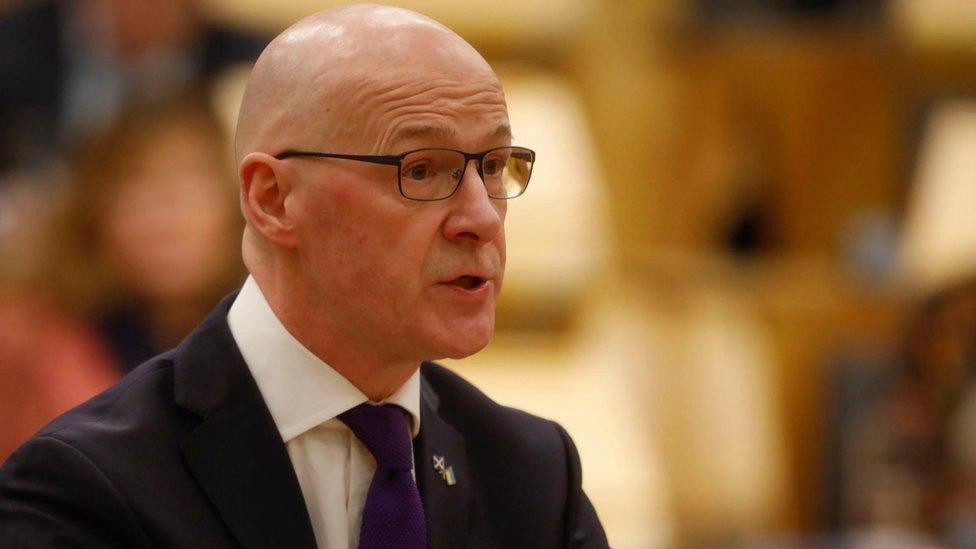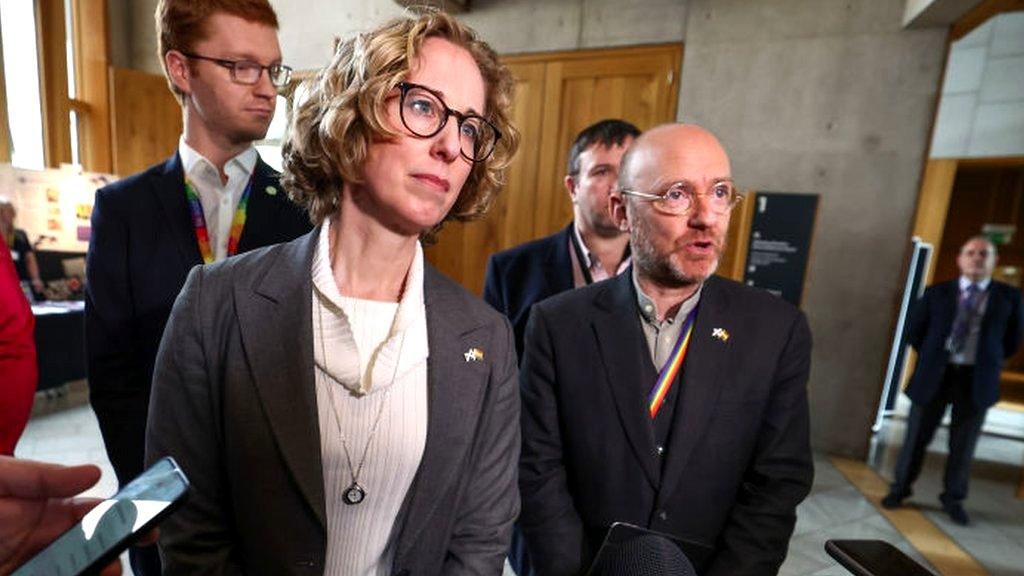How will Scotland's next first minister be chosen?
- Published

John Swinney is expected to be the only candidate in the SNP leadership contest
John Swinney looks set to become Scotland's next first minister after being named leader of the SNP.
Outgoing first minister Humza Yousaf resigned during the turmoil that followed his decision to end the Scottish government's power-sharing agreement with the Scottish Greens.
Mr Swinney won the SNP leadership unopposed after potential rivals pledged their support to him.
He will now seek a nomination from parliament to become first minister.
How is a new first minister selected?
Mr Yousaf said he would continue as first minister until his successor as SNP leader was chosen.
Once his resignation is accepted by the King, parliament has 28 days to nominate a replacement.
The nomination process takes place in the Scottish Parliament.
The timing is decided by the parliamentary bureau, and could take place as early as Tuesday.

Leaders of other political parties can also put themselves forward during this process, although they would not expect to win. Any MSP can nominate a candidate, although it must be seconded by another member.
If there is more than one candidate, any who secures more than half of all votes will win the nomination.
If no-one reaches that threshold, the candidate with the fewest votes will be eliminated. This process will be repeated until the field is whittled down to two.
At that point, a candidate would only require a simple majority to win the nomination, meaning they only have to gain more votes than their opponent.
The SNP has 63 seats in the parliament, which means it does not have a majority.
However, the party's nominee would be expected to win the vote and become first minister.
When could the new FM be in place?
It is expected that Mr Yousaf would formally resign as first minister on Tuesday.
There could then be a vote in the Scottish Parliament that afternoon to choose the new first minister.
The parliament's presiding officer would then recommend to the King that the winner be appointed as the new first minister.
There would then be an official swearing-in ceremony at the Court of Session in Edinburgh. This is likely to happen on Wednesday.
Should the parliament fail to agree a nomination for first minister within 28 days, the presiding officer would be required to propose a date, external for an "extraordinary general election". However, this has never happened in Scotland.
- Published25 April 2024
